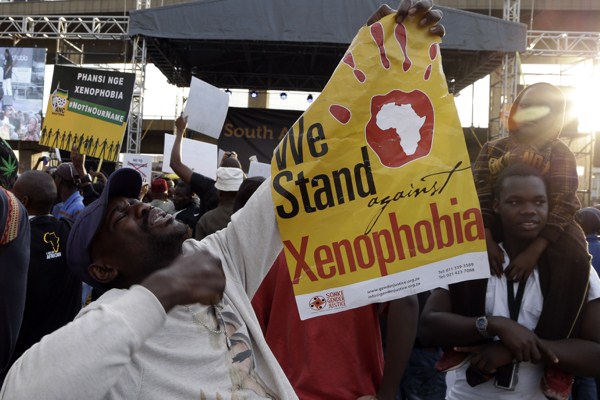Last week, a wave of xenophobic violence struck two of South Africa’s largest cities, Johannesburg and Durban. Mobs torched foreign-owned shops and killed seven people in the country’s worst attacks against foreigners since 2008, when over 60 people were killed in similar incidents. The localized unrest quickly became a regional crisis, as multiple African governments issued angry statements on behalf of their citizens, millions of whom have migrated to South Africa in search of economic opportunity since the end of apartheid. South African President Jacob Zuma has been scrambling to respond; so far he has deployed the army to quell the violence at home, addressed the nation to call for calm and attempted to put out diplomatic fires across the continent.
Zulu King Goodwill Zwelithini, who is recognized under the South African Constitution as ceremonially representing the largest ethnic group in the country, may have triggered the violence by comparing foreigners to “lice” and “ants” and saying they must “pack their bags and go home,” although he has since tried to deny responsibility.
But according to James Hamill, a political scientist at the University of Leicester and an expert on South Africa, Zwelithini’s words only resonated because of the deeper problems facing “the poor and socio-economically deprived South Africans in townships and informal settlements who see foreigners as competing with them for jobs and resources.”

